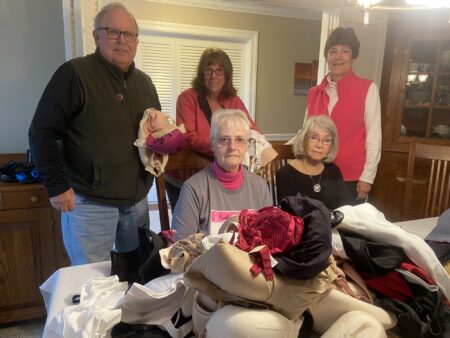HARRISBURG – With the recent devastation throughout the south caused by Hurricane Ian, the Pennsylvania Insurance Department is urging property owners to take steps to prepare for weather-related emergencies and consider purchasing flood insurance to protect their homes, businesses, and possessions.
“All too often, we hear from those who have experienced the pain of significant storm damage only to realize their flooded homes and possessions were not covered under their homeowners’ insurance,” said Deputy Insurance Commissioner Dave Buono. “There are so many folks who just don’t think it is going to happen to them, and unfortunately, time and time again, it does.
“We want to urge people now to take the time to prepare for potential hazards, review their coverage, and consider purchasing added flood insurance to help mitigate the financial risk to your family and home,” added Buono.
For many Pennsylvanians, extreme weather, including flooding and damages caused by hurricanes and severe thunderstorms, can be a common occurrence throughout the state. However, often homeowners do not realize most standard homeowners’ and renters’ insurance policies do not cover damages caused by flooding.
Flood insurance is available through both the National Flood Insurance Program (NFIP) and the rapidly growing private market, regardless of whether you live in a designated flood zone. Homeowners who live in federally designated Special Flood Hazard Areas (SFHAs) are likely required to have flood insurance by their mortgage lenders. Individuals looking to purchase new homes and properties should research before buying to determine if the area is prone to flooding.
Property and business owners should get familiar with their policies or talk with a representative from their insurance company to identify what their policy does and doesn’t cover. Policy holders should also find out what their policy deductible is, and any dollar limits on the amount of damage the policy will cover.
This year’s theme for NPM is, “A Lasting Legacy. The life you’ve built is worth protecting. Prepare for disasters to create a lasting legacy for you and your family.” The goal of NPM is to increase the overall number of individuals, families, and communities that engage in preparedness actions at home, work, businesses, school, and places of worship.
PID has resources available that can help guide the property owner through filing insurance claims, and tips to avoid repair scams in the event of a hurricane or storm that causes flooding and damages.
The After the Storm brochure, found online at insurance.pa.gov, includes tips such as:
- Contact the insurance company as soon as possible after the storm
- Save all receipts
- Take photographs or video before cleaning or making repairs
- After documenting damage, make repairs needed to prevent further damage or to live in the home, but don’t make permanent repairs before insurance company inspects the damage and approves the repairs
- If possible, determine what it will cost to repair the property before meeting with an insurance company representative who will assess the damage. If there is a disagreement on the offer made to repair the property, individuals should be prepared to negotiate
Storms that cause damage to numerous homes and businesses throughout a community can be a magnet for dishonest contractors. The department provides several tips for consumers on how to avoid home repair scams, including how to hire home improvement contractors.
More information on the NFIP and private flood insurance is available on the Insurance Department’s one-stop Flood Insurance page, and more information on guidance following a severe weather event can be found on the department’s Disaster Recovery Resources page. Consumers with questions or wishing to file a complaint can contact the Insurance Department’s Consumer Services Bureau, or by calling 1-877-881-6388.





















